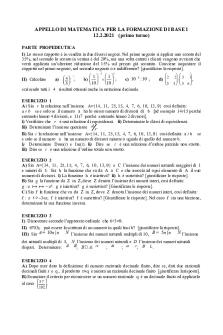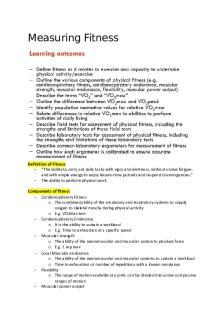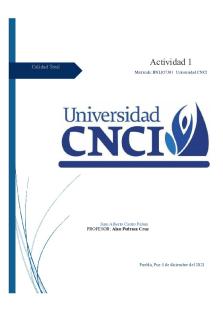Ques G Presentation - Cases for question G Introduction in Contract I PDF

| Title | Ques G Presentation - Cases for question G Introduction in Contract I |
|---|---|
| Course | Contract I |
| Institution | Universiti Malaya |
| Pages | 2 |
| File Size | 102.1 KB |
| File Type | |
| Total Downloads | 43 |
| Total Views | 142 |
Summary
Cases for question G Introduction in Contract I...
Description
TORT TUTORIAL PRESENTATION (OFFER&ACCEPTANCE) QUESTION G Case: Ignatius v Bell [1913] 2 F MSLR 155 The plaintiff sued for specific performance of an option agreement which purported to give him the option of purchasing the defendant’s rights over a piece of land. This option was to be exercised on or before the 20th day of August, 1912. The parties had contemplated the use of the post as a means of communication. The plaintiff sent a notice of acceptance by registered post in Klang on August 16th, 1912 but it was not delivered till the evening of August 25th because the plaintiff was away. The letter had reminded in the post office at Kuala Selangor until picked up by the defendant. The issue was whether the notice sent by the plaintiff to the defendant was a valid acceptance. The Court held it was. The Court, applying section 4, held that the option was duly exercised by the plaintiff when the letter was posted on August 16th.
Case : THEHOUSEHOLDFI REANDCARRI AGEACCI DENTI NSURANCECOMPANY ( LI MI TED)v .GRANT. ,( 1879)4Ex . D.216 Facts : The defendant, Mr Grant, applied for shares in the complainant’s company, the Household Fire Insurance. The complainants allotted shares to Mr Grant and they completed this contract by posting him a letter with notice of the allotment. However, this letter never reached Mr Grant and it was lost in the post. Mr Grant never paid for the shares as a consequence. When the Household Fire Insurance company went bankrupt, the liquidator asked the defendant for payment of the shares. Mr grant refused to pay, as he did not believe he was a shareholder nor was there a binding contract in his mind. Issues : The court held that the liquidator was entitled to recover this money, as there was a binding contract between Mr Grant and the Household Fire Insurance company. This decision was appealed. The issue in the appeal concerned whether there had been an acceptance of the share offer and if there was a legally binding contract. Held :The appeal was dismissed and it was held that there was a valid contract between the parties for the shares. The postal rule was affirmed, which states that acceptance is effective when it is mailed, as long as the parties consider the post as an acceptable way of communicating. A contract becomes binding the instant that the acceptance is put in the mail, so long as the parties have contemplated the mail as a viable means of communication in their dealings (the postal rule).
Thesiger and Baggallay (2 judges) agree with the trial judge's decision that the contract was formed when the acceptance was mailed. They discuss the pros and cons of the postal rule, and decide that the pros outweigh the cons. They state that the offeror can always choose to make the acceptance binding only upon his through the mail as long as that is a medium of communication that the parties contemplated as at the time of mailing there is a meeting of the minds. This rule is true even though the letter never arrived to Mr Grant. Lord Justice Thesiger stated that posting acceptance creates a ‘meeting of minds’, which created a binding contract. Lord
Justice Bramwell dissented, arguing that the postal rule can hinder transactions and that acceptance should only be effective once the letter arrives. Case : AdamsvLi ndsel l ,( 1818)1B&Al d681,106ER250 The facts of Adams v Lindsell are that: the defendants wrote to the plaintiffs on 2 September, offering to sell them some wool and requested that the plaintiffs reply ‘in course of post’. The letter which contained the offer was wrongly addressed and therefore the plaintiffs did not receive it until 5 September. As a result of this delay, the letter of acceptance was not received until 9 September by the defendants, and this was two days later than the defendants would have expected to receive it. Because of this, on 8 September the defendants had sold the wool to a third person. The question for the court in Adams v Lindsell was therefore whether a contract of sale had been entered into before 8 September when the wool was sold to the third party. If the acceptance was effective when it arrived at the address or when the defendant saw it, then no contract would have been made and the sale to the third party would amount to revocation of the offer. However, the court held that the offer had been accepted as soon as the letter had been posted. Thus, in Adams v Lindsell there was indeed a contract in existence before the sale of the wool to the third party, even though the letter had not actually been received by the defendant. The defendant was therefore liable in breach of contract. To make it easier to understand, I could say that it’s A by letter offered to sell to B certain specified goods, if he received an answer by return of post. The letter being misdirected, the answer notifying the acceptance of the offer arrived two days later than it ought to have done. On the day following that when it would have arrived if the original letter had been properly directed, A sold the goods to a third person: Held there was a contract binding the parties, from the moment the offer was accepted, and B was entitled to recover against A in an action for not completing his contract. If that were so [the agreement of defendants that until plaintiff's answer was actually received there could be no binding contract between the parties] no contract could ever be completed through the post (per curium)....
Similar Free PDFs

G+ ziarniaki i Enterobacteriaceae
- 22 Pages

Assignment 1 - g g
- 3 Pages

practice question Osce O&G
- 38 Pages

Cases for Contract II
- 23 Pages

Contract law cases for Cancellation
- 10 Pages
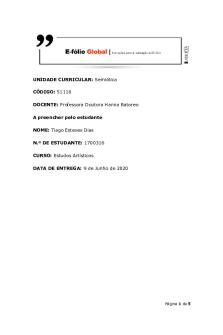
Efolio G
- 5 Pages
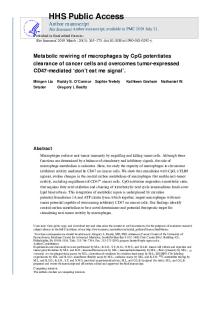
Cp G
- 30 Pages

G Greene
- 4 Pages

G. mikroba
- 15 Pages
Popular Institutions
- Tinajero National High School - Annex
- Politeknik Caltex Riau
- Yokohama City University
- SGT University
- University of Al-Qadisiyah
- Divine Word College of Vigan
- Techniek College Rotterdam
- Universidade de Santiago
- Universiti Teknologi MARA Cawangan Johor Kampus Pasir Gudang
- Poltekkes Kemenkes Yogyakarta
- Baguio City National High School
- Colegio san marcos
- preparatoria uno
- Centro de Bachillerato Tecnológico Industrial y de Servicios No. 107
- Dalian Maritime University
- Quang Trung Secondary School
- Colegio Tecnológico en Informática
- Corporación Regional de Educación Superior
- Grupo CEDVA
- Dar Al Uloom University
- Centro de Estudios Preuniversitarios de la Universidad Nacional de Ingeniería
- 上智大学
- Aakash International School, Nuna Majara
- San Felipe Neri Catholic School
- Kang Chiao International School - New Taipei City
- Misamis Occidental National High School
- Institución Educativa Escuela Normal Juan Ladrilleros
- Kolehiyo ng Pantukan
- Batanes State College
- Instituto Continental
- Sekolah Menengah Kejuruan Kesehatan Kaltara (Tarakan)
- Colegio de La Inmaculada Concepcion - Cebu

![Quantization energy lab report er g g g g g g g g g g g g g g g g g g g g g g]\\](https://pdfedu.com/img/crop/172x258/og2v1qo08824.jpg)
